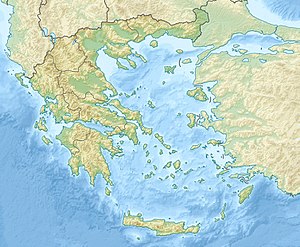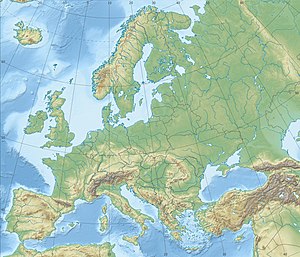
Back تدمير الأخمينية لأثينا Arabic Destrucció aquemènida d'Atenes Catalan Destrucción aqueménida de Atenas Spanish تخریب آتن به دست هخامنشیان Persian Destruction achéménide d'Athènes French Ахеменидское разрушение Афин Russian ஏதென்சை அகாமனிசியர் அழித்தல் Tamil
| Achaemenid destruction of Athens | |||||||
|---|---|---|---|---|---|---|---|
| Part of the Greco-Persian Wars | |||||||
 Perserschutt, a collection of Greek artifacts that were destroyed by Persian soldiers at the Acropolis of Athens, photographed shortly after being excavated in 1866. | |||||||
| |||||||
| Belligerents | |||||||
| Athenian city-state | Achaemenid Empire | ||||||
During the second Persian invasion of Greece, which took place between 480 and 479 BCE, Athens was captured and subsequently destroyed by the Achaemenid Empire. A prominent Greek city-state, it was attacked by the Persians in a two-phase offensive, amidst which the Persian king Xerxes the Great had issued an order calling for it to be torched. The Persian army commander Mardonius oversaw the razing of several structures of political and religious significance throughout the city, including the Acropolis, the Old Temple of Athena, and the Older Parthenon. A year later, the Greek coalition retook Athens and dealt a devastating defeat to the Persian army during the Battle of Plataea, killing Mardonius and setting the stage for the eventual expulsion of all Persian troops from Europe.
Athens' destruction by the Persians prompted the Greeks to build the Themistoclean Wall around the city in an effort to deter future invaders, and the event continued to have an impact on Greek society for a prolonged period; a number of Athenian artifacts that had been taken to Persia during the Greco-Persian Wars were returned to Greece during the Wars of Alexander the Great, and according to the Greek historians Plutarch and Diodorus, it was the legacy of the Persian assault on Athens that ultimately influenced Alexander's decision to burn down the Palace of Persepolis as he was completing his conquest of the Achaemenid Empire in 330 BCE.
© MMXXIII Rich X Search. We shall prevail. All rights reserved. Rich X Search

